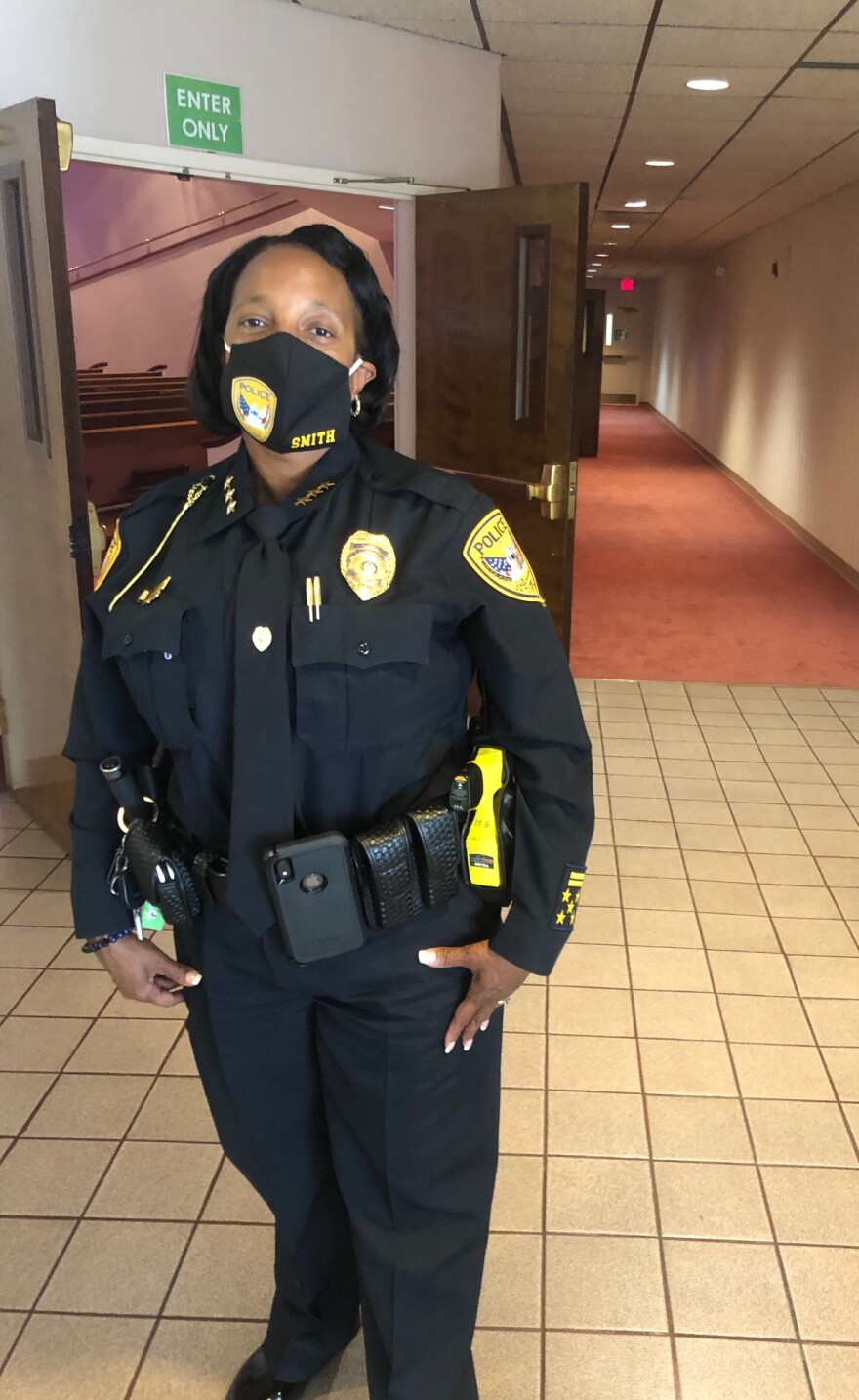The Tallahassee Police Department is moving forward with its own citizen advisory council. Police Chief Lawrence Revell announced the creation of the group in January. It is separate from the city’s proposed police review board. The citizen advisory council is being chosen by Pastor Rudy Ferguson and Deputy Police Chief Tonja Bryant-Smith. Ferguson is slated to be chairman, and the group, made up of approximately 30 members, will report to Bryant-Smith. She spoke with WFSU News about the current state of policing, what she’d do if given the opportunity to rebuild her profession, and her vision for the advisory council.
This interview has been transcribed and lightly edited for clarity.
Q: What is your goal for the citizen advisory council? Can it be effective in this current climate?
A: You know, everybody's screaming ‘transparency, transparency.’ So a couple of weeks ago, we put our policies out there. I think that's the first step because now you learn how we're supposed to do business, you learn how a little bit more about the department. So one of my goals with this council is to have training on our use of force because I don't think people know what we can, and can't do in situations. Because that split-second [decision]? People don’t know what that means. This is my 29th year in law enforcement. And I can tell you, I've been in a couple of shooting situations, and those are tense situations.
Q: You said you’ve been in shooting situations. Tell me about one of them.
When I first became a supervisor with the Florida Department of Law Enforcement, in 2011 we responded to a wanted person. We had an informant telling us a guy was wanted. The guy actually basically kind of led us through a neighborhood. He had a gun. We ended up boxing him in a neighborhood. And he subsequently tried to take the gun off because he had a warrant. So he subsequently took the gun out of his pocket, and we ended… up in a shootout. So while I didn't shoot, the person that I was with shot, and so everybody that was involved in that shooting, we had to take our guns out.
There are times when you're involved in a shooting, you don't realize you shot because that whole tunnel vision sets in. So we've had officers that have shot, that don't remember they shot, so you have to get your bullets counted. It's very traumatic. I've had a guy shoot himself in front of me. So there's a lot of things that you go through…[that you sit there and you go, ‘Hey, is this still for me?’ And I could say, 29 years later, I'm still good. I’m still okay. We signed up for this. Everybody doesn't sign up for this.
Q: How do you continue to do this job, and still maintain empathy?
I got [into] this job to help people. And I know that the kids are our future. And I know that there's room for change, and I want to be that change, I absolutely want to be that change. And I know that I can still change, there's still room to change. There's still there's a lot of good people still out here. And... we can make a difference there, I can make a difference. So that's why I still do this. I still put on this uniform every day to make that change.
Q: If you could tear down the system and rebuild it in your own vision, what would it look like?
A: I think it would just be more so just the whole I think the training maybe but I think more so…I think going into the different neighborhoods and just getting a little bit more buy-in. So, I'm in charge of recruiting. Right now. I have recruiting and training, which are the two issues where we're trying to bring in people and people are questioning how officers are being trained. Those are the two hot topics right now. So we're struggling, more so in the recruiting part. I'm trying to figure out how am I going to get people? And when I'm talking to kids now, because, as little kids what are your parents usually tell you? ‘If you're bad, I'm going to call the police and they're going to take you to jail.’ So, trying to change that mindset. I'm having to change little kids’ mindset of being scared of police. This weekend, we did hot dogs at Leon Arms [apartments] for the kids. So, it's just trying to change the mindset that police aren't bad. Yeah, do we have bad cops? Do we have bad teachers? Do we have bad doctors? Every profession has a bad apple, it’s just that you see more police officers being spread on the news.


